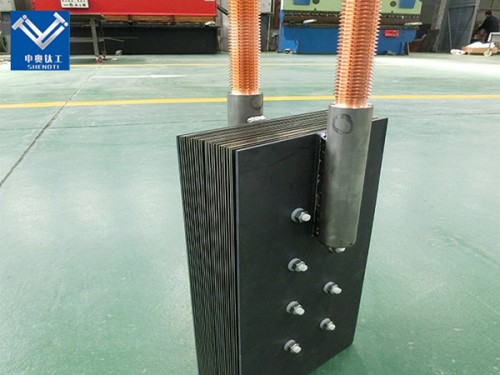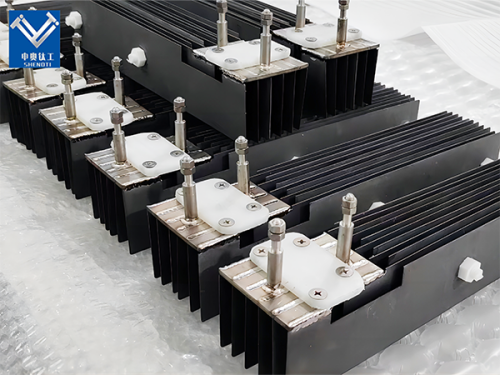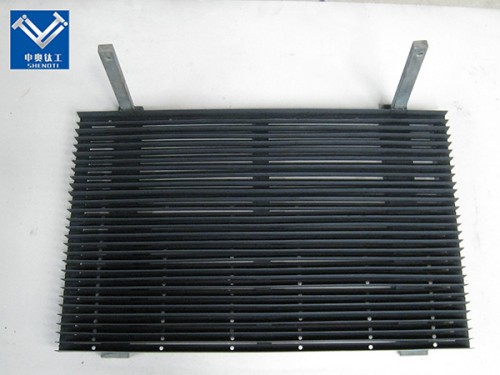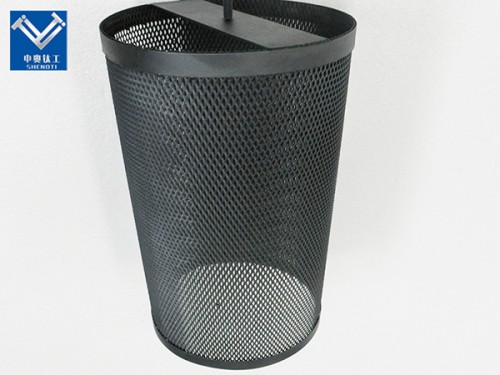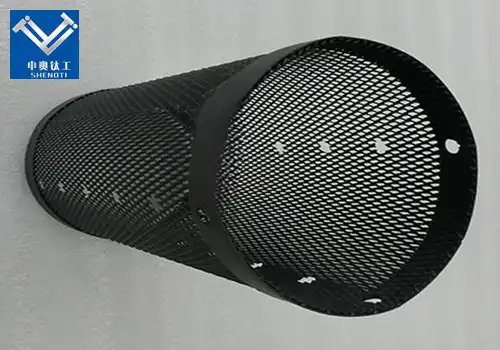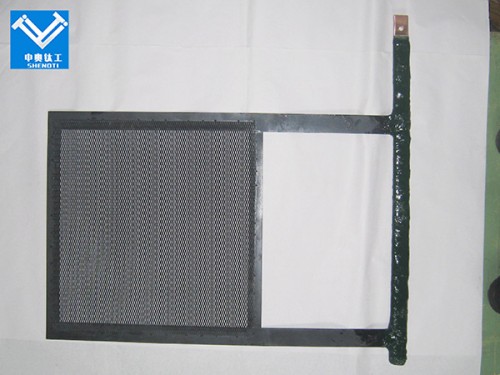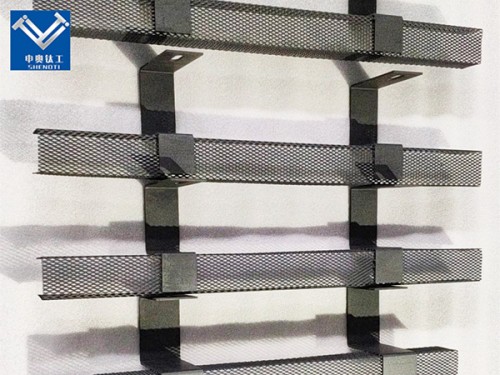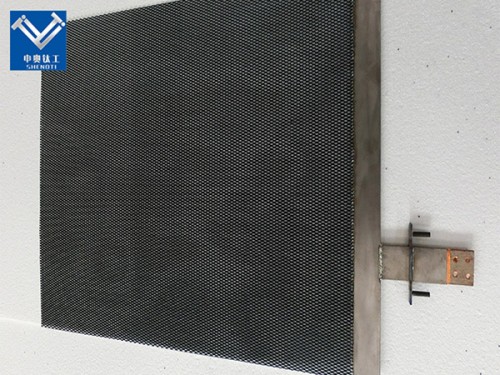
What is a Titanium Anode for Electrolysis of Seawater?
2025-08-28 09:40:04
Electrochemical technologies are playing a critical role in the global shift toward cleaner energy, sustainable water treatment, and resource recovery. Among them, titanium anode for electrolysis of seawater has emerged as a high-performance and long-lasting solution. With its superior resistance to corrosion, stable electrochemical properties, and wide adaptability across industries, the titanium anode is a cornerstone for seawater electrolysis systems worldwide.
What is a Titanium Anode for Electrolysis of Seawater?
A titanium anode for electrolysis of seawater is an electrochemical electrode composed of a titanium substrate coated with a layer of noble metal oxides, such as ruthenium oxide (RuO₂), iridium oxide (IrO₂), or mixed metal oxides (MMO). This special configuration combines the lightweight strength and corrosion resistance of titanium with the high catalytic activity of the coating, enabling efficient chlorine and hydrogen generation during the seawater electrolysis process.
Core Features of Titanium Anode for Electrolysis of Seawater
Excellent corrosion resistance: Titanium naturally forms a passive oxide film, preventing rapid degradation in chloride-rich seawater environments.
High current efficiency: The noble metal oxide coating significantly reduces overpotential, improving chlorine evolution and reducing energy consumption.
Long service life: With proper coating design, titanium anodes can achieve operational lifetimes exceeding 10,000–15,000 hours in seawater conditions.
Eco-friendly material: Unlike traditional graphite or lead-based anodes, titanium anodes do not release toxic substances, ensuring clean operation.
Manufacturing Process of Titanium Anode for Electrolysis of Seawater
1. Selection of Titanium Substrate
High-purity titanium grades such as TA1, GR1, or GR2 are commonly used.
Titanium plates, tubes, or meshes can be selected depending on the electrolysis system design.
2. Surface Pretreatment
Mechanical polishing and sandblasting are applied to increase surface roughness.
Chemical etching with acid removes impurities and enhances adhesion between titanium and the coating.
3. Coating Application
Noble metal oxides (RuO₂, IrO₂, Ta₂O₅, or MMO blends) are applied through thermal decomposition or brush coating.
Multiple layers are baked at high temperatures to form a dense and uniform catalytic film.
4. Thermal Treatment and Quality Control
Heat treatment stabilizes the coating structure.
Quality inspection ensures coating thickness, adhesion strength, and electrochemical activity meet strict standards.
Technical Advantages of Titanium Anode for Electrolysis of Seawater
The adoption of titanium anode for electrolysis of seawater is driven by its unique technical properties.
Corrosion Resistance in Chloride Environments
Unlike stainless steel or copper electrodes, titanium resists chloride-induced corrosion, making it ideal for seawater electrolysis plants.
High Current Density and Low Overpotential
The coated surface significantly lowers the energy barrier for chlorine evolution, reducing power consumption and operating costs.
Customizable Designs
Titanium anodes are available in various forms:
Plate type for flat electrode cells
Mesh type for improved electrolyte circulation
Tube type for compact electrolysis units
Extended Service Life
Depending on coating composition, titanium anodes can last several years under continuous seawater electrolysis conditions.
Applications of Titanium Anode for Electrolysis of Seawater
1. Chlorine and Sodium Hypochlorite Production
Titanium anode for electrolysis of seawater is widely used for generating chlorine gas and sodium hypochlorite solutions.
These products are crucial for disinfection in power plants, municipal water supply, and aquaculture facilities.
2. Hydrogen Production from Seawater
In renewable energy projects, titanium anodes play a role in producing hydrogen fuel through seawater splitting.
They offer a sustainable pathway to green hydrogen development.
3. Seawater Desalination Pre-treatment
Seawater electrolysis produces oxidants that prevent biofouling in desalination plants, ensuring stable reverse osmosis performance.
4. Marine and Offshore Industries
Ships, offshore platforms, and cooling water systems employ titanium anodes for antifouling and disinfection purposes.
5. Environmental Protection and Wastewater Treatment
Seawater electrolysis using titanium anodes is applied in treating ballast water, industrial effluents, and high-salinity wastewater.
Case Studies of Titanium Anode for Electrolysis of Seawater
1: Coastal Power Plant Cooling System
A power plant near the coastline integrated titanium anode for electrolysis of seawater into its cooling system. The anodes continuously generated sodium hypochlorite, effectively preventing biofouling in condenser tubes, reducing maintenance costs, and extending system lifespan.
2: Aquaculture Farm in Southeast Asia
An aquaculture facility used titanium anodes to produce on-site disinfectant for seawater tanks. The result was improved fish survival rates, lower disease outbreaks, and reduced reliance on chemical disinfectants.
3: Seawater Desalination Plant
A large desalination project adopted titanium anodes to generate oxidants for pre-treatment. This reduced membrane fouling, enhanced operational efficiency, and improved freshwater output.
Industry Fields Benefiting from Titanium Anode for Electrolysis of Seawater
Energy & Power: Cooling water treatment, hydrogen production
Water Treatment & Desalination: Pre-treatment, disinfection
Marine & Offshore: Antifouling systems, ballast water treatment
Aquaculture: Disease prevention, water quality management
Environmental Protection: Industrial wastewater treatment
Why Choose Our Titanium Anode for Electrolysis of Seawater?
As a professional manufacturer of titanium and non-ferrous metal materials, we specialize in producing high-quality titanium anode for electrolysis of seawater. Our advantages include:
Advanced coating technology with precise control of noble metal oxide composition.
Wide product range including plate, mesh, and tubular anodes.
Proven applications across power plants, desalination projects, and aquaculture industries.
Long-term durability and cost-effective performance.
The titanium anode for electrolysis of seawater is a vital innovation in electrochemical engineering, offering high efficiency, durability, and environmental benefits. From chlorine generation to seawater desalination and green hydrogen production, titanium anodes are enabling industries to operate sustainably and economically.
If you are looking for reliable, high-performance titanium anodes tailored to your project needs, we are here to provide professional solutions.
Contact Us
Baoji City ShenAo Metal Materials Co., Ltd.
📧 Email: zh@baojiti.com.cn
Tel: 18729731603
Website: https://www.shenaocladplate.com
YOU MAY LIKE











